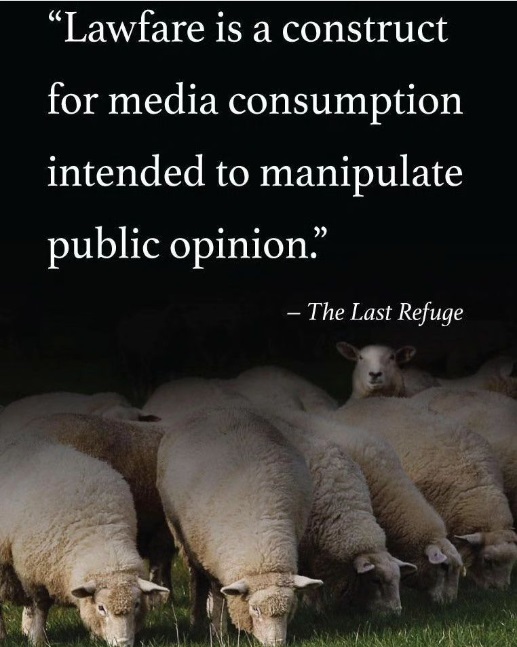Supreme Court Will Hear Dispute Over Twisted Obstruction Law Used to Indict J6 Defendants and Trump
Two of the charges against Donald Trump are centered around 18 U.S. Code § 1512(c)(2), part of the 2002 Sarbanes-Oxley Act. As noted by Julie Kelly, “The statute was meant to close a loophole in other obstruction laws related to the destruction of evidence but left open to interpretation the terms “corruptly” and “official proceeding.”
In addition to Donald Trump, this federal statute meant to target organized crime and financial crimes has been used against 300 J6 defendants. Three J6 defendants have appealed the use of this provision to charge them with obstruction. A DC trial judge originally agreed with the argument and dismissed the framework of the Lawfare effort.
However, the U.S. Court of Appeals for the District of Columbia Circuit reversed the dismissal order.
J6 Defendants Edward Lang, Garrett Miller and Joseph Fischer appealed to the Supreme Court, which has now agreed to take up the case, U.S. v Fischer. In one way, this can be looked at as the Supreme Court reviewing the charges against Donald Trump, without ruling on the charges against Donald Trump.
There is a strong possibility the twisted Lawfare use of 18 USC 1512 by the DOJ will be rejected by the court, thereby removing two of the charges against Trump.
Washington — The Supreme Court said Wednesday that it will hear a court fight involving the breadth of a federal obstruction law that has been used to prosecute scores of defendants for their alleged actions during the Jan. 6, 2021, assault on the U.S. Capitol, as well as former President Donald Trump.
An eventual decision from the Supreme Court in the case known as Fischer v. U.S. could have far-reaching impacts, since the Justice Department has charged more than 300 people under the obstruction statute in cases related to Jan. 6.
Most significantly, special counsel Jack Smith has charged Trump with a single count of corruptly obstructing and impeding an official proceeding, namely Congress’ certification of the Electoral College results on Jan. 6. The former president has pleaded not guilty to that offense and the three others he is facing in the case related to the 2020 presidential election. A trial in Trump’s case is set to begin in March.
Arguments before the Supreme Court will take place next year, with a decision, which could threaten Trump’s charge, expected by the end of June. (read more)
As we have noted from the outset, Lawfare is a construct, a twisted manipulation of law, specifically intended for media consumption with the end goal to influence public opinion.
Special Counsel Jack Smith has applied twisted interpretations of law to his cases. The ability of the constructs to withstand judicial scrutiny has only just begun.







Post a Comment